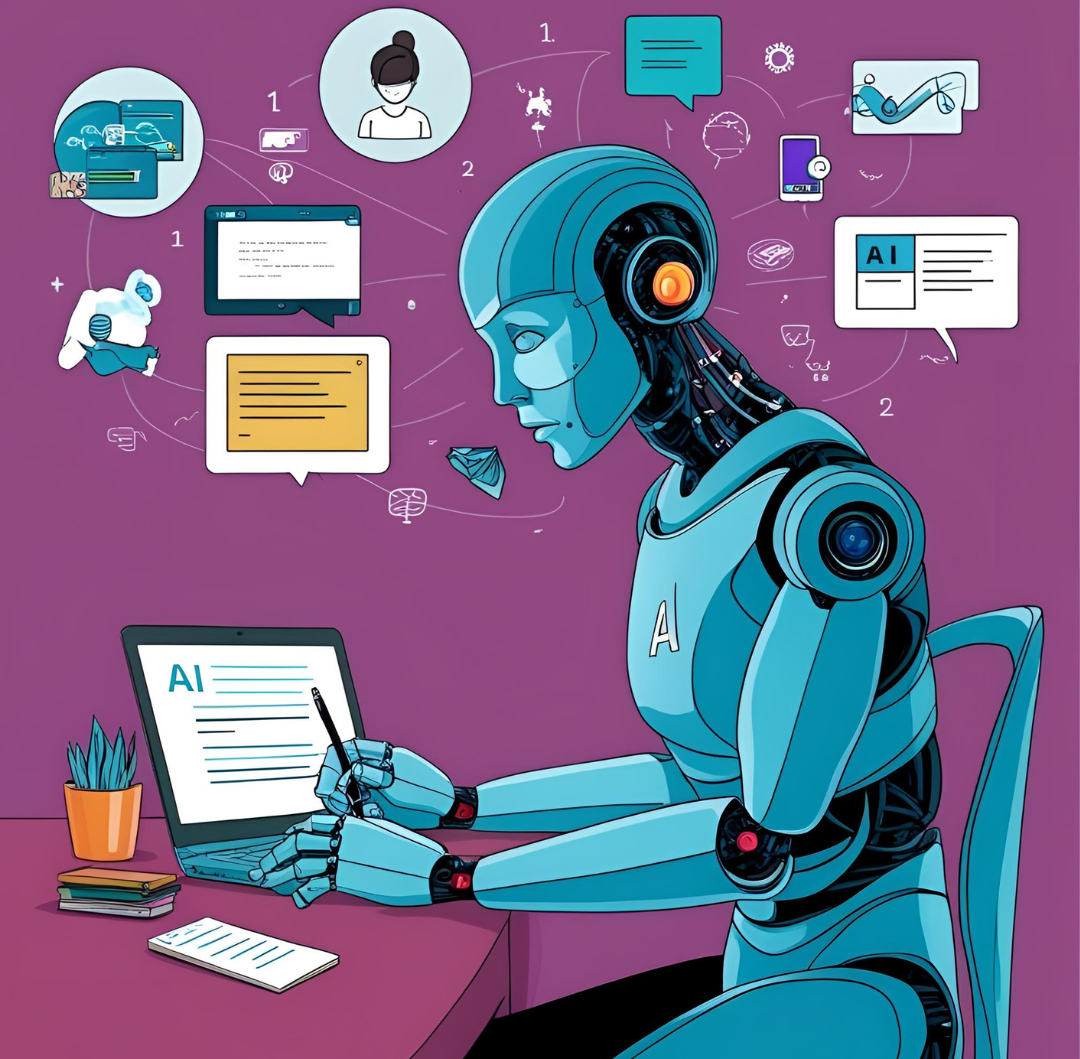Is AI Generated Content Good for SEO?
If you’re exploring ways to boost your SEO, you might be considering AI-generated content. With plenty of discussion about its impact on rankings, quality, and search engine rules, it’s natural to want clear answers. In this article, you’ll discover how AI content works, how it affects SEO, and whether it’s the right fit for your digital marketing goals.
What We Will Cover
- Understanding AI Content Generation
- Impact of AI Content on SEO
- Pros and Cons of AI for SEO
Let’s take a closer look at these topics to find out if AI-generated content can truly help your SEO efforts.
Understanding AI Content Generation
AI content generation uses advanced algorithms to create text that reads as if it were written by a person. You may have heard about "automated content creation" in the context of AI-powered SEO. This technology learns from vast collections of online text to mimic human language and tone. Marketers use it for generating SEO content, creating articles and blog posts, and maintaining a strong online presence.
Many digital marketers have started using automated content creation tools. These promise efficiency, consistency, and speed—helping you produce blog posts, articles, and social media updates quickly. While early versions could sometimes produce awkward or low-quality text, today’s AI tools are much better at creating content that matches user intent and digital marketing standards.
Here, we’ll explore how AI for SEO optimization works and how it’s changed the way content is planned and produced, making it easier to create content that appeals to both readers and search engines.
How Does AI Generate Content?
AI content generation works by using natural language processing and machine learning to create writing that sounds natural. Tools like GPT (Generative Pre-trained Transformer) study massive amounts of text to learn grammar, context, and style.
Think of it as a digital assistant that pulls together data, trends, and best practices to create SEO-friendly content. These systems are often set up to include important keywords, such as “writing good content for SEO,” in a way that feels natural to readers.
When writing, the AI uses its knowledge base to generate new content that matches the desired tone, style, and accuracy. Further refinement ensures the text is clear and engaging, making it suitable for both readers and search engines.
Applications of AI in Content Marketing
AI has become a valuable tool in many areas of content marketing. One of the biggest uses is in creating SEO-friendly content quickly and efficiently. Many marketers aim to produce quality content that saves time without sacrificing value.
AI tools are now part of content planning software, helping you draft outlines, generate first drafts, and suggest improvements for clarity and keyword usage. For example, using AI-powered content briefs can streamline your workflow and boost productivity.
You can also use AI tools to edit and optimize your content. By analyzing search trends and user data, these systems help you create content that matches what your audience is searching for—making your SEO strategy more effective.
Businesses are using AI to reduce manual work in content strategy, freeing up time for other important marketing tasks. Automated content creation helps maintain a consistent voice and style across your digital channels, blending technology with creativity.
Key Takeaways
- AI content generation uses machine learning and natural language processing to create text that reads like it was written by a person.
- AI helps marketers plan, draft, and optimize content for SEO, and can personalize text based on user data.
Impact of AI Content on SEO
You might wonder if AI-generated content can help your website rank higher in search results. Understanding AI’s effect on SEO means looking at how well these tools use keywords, maintain readability, and engage readers. Let’s see how AI is shaping modern SEO practices.
AI’s impact on SEO is multi-layered. It helps you quickly create drafts with targeted keywords, making SEO writing more efficient. But it also raises questions about the authenticity and originality of the content. With the right editing and oversight, though, AI can be a strong asset in your SEO toolkit.
Experts note that when AI-driven SEO content is carefully managed, it can be both high-quality and relevant. This means your content not only performs well in search engines but is also valuable to your readers.
AI and Keyword Optimization
AI tools analyze search data and keyword trends to help you naturally include important search terms in your content—without falling into the trap of keyword stuffing. AI systems are updated with the latest search algorithms, so your drafts stay current with SEO best practices.
With AI-powered SEO tools, you can fine-tune where and how keywords appear, striking a balance between natural writing and search engine optimization. Some platforms even give you real-time tips to improve keyword density and readability, helping your articles perform better in search rankings.
AI can also spot emerging trends, making it easier to stay ahead of the competition. This means producing keyword-rich, reader-friendly content is faster and more efficient than ever.
AI and User Engagement
User engagement is key for good SEO, and AI-generated content is designed to help keep readers interested. AI can structure content with short paragraphs and clear headings, making it easier to scan and read.
Well-crafted AI content delivers useful information in a conversational style, which can help lower bounce rates and boost engagement—both important for SEO success.
However, engagement can drop if the writing feels too robotic or lacks context. That’s why combining AI power with human input ensures your content remains relatable and authentic.
Key Takeaways
- AI can help you use targeted keywords effectively and keep up with changing search engine standards.
- User engagement improves with clear, well-structured AI content, but human editing is necessary to keep it authentic and interesting.
Pros and Cons of AI for SEO
AI brings many benefits to SEO, but there are also challenges to consider. Deciding whether to use AI for your SEO content means weighing its strengths and weaknesses, such as content quality, originality, and compliance with search engine guidelines.
A big advantage is the time you save by generating drafts and outlines quickly. AI helps you maintain a regular flow of new content, which is great for keeping your website up to date. However, relying too heavily on AI can make your content feel repetitive or generic—impacting your site’s uniqueness and user experience.
There’s also ongoing debate about how search engines handle AI-generated text. Quality and adherence to guidelines are important, so it’s essential to combine AI capabilities with human review. Let’s look at the main benefits and challenges of using AI for SEO.
Benefits of AI Content for SEO
One clear benefit of AI is the speed at which you can generate content. AI-powered tools let you create lots of text quickly, giving you more time to focus on strategy and other areas of your website. This is especially helpful for businesses that need to scale up their content production.
AI also analyzes data in real time, so your keywords and topics stay fresh and relevant. This keeps your content competitive in search results. Tools like Ampli’s AI-powered SEO content brief generator make the process even easier by providing detailed guidelines tailored to your niche.
Other perks include fewer human errors, faster turnaround times, and a consistent brand voice across your content. When used thoughtfully, AI can streamline your workflow and increase productivity without sacrificing quality.
Challenges and Risks of AI Content for SEO
Despite the benefits, there are challenges to be aware of. Sometimes, AI-generated content may sound repetitive or lack originality, which can hurt your website’s appeal and SEO performance. It’s important to review and edit AI content to make sure it truly connects with your audience.
There’s also a risk that search engines might detect patterns typical of machine-generated content, which could affect your rankings. Content that feels too generic or impersonal may not engage users as well as you’d like.
Finding the right mix between AI support and human creativity is key. While AI can handle much of the content creation process, human editing ensures your articles meet both reader expectations and search engine requirements.
Key Takeaways
- AI content for SEO offers faster content creation, better keyword integration, and more consistent style.
- Potential downsides include concerns about originality, the possibility of search engine penalties, and a risk of creating generic content that fails to engage users.
Drawing Conclusions: Is AI Content Good for SEO?
After looking at how AI fits into SEO content creation, you can see it has real advantages—especially for efficiency and supporting good SEO writing. When you combine AI tools with thoughtful human editing, you get the best results: targeted keywords, engaging writing, and content that meets SEO best practices.
There’s no single answer for everyone. AI can help you produce quality SEO content at scale, but its effectiveness depends on how you use it. By reviewing and refining AI drafts and setting up solid quality checks, you can make the most of this technology. Quality SEO content created with AI is possible—and even beneficial—when it’s balanced with your own expertise.
Frequently Asked Questions
Is AI content ok for SEO?
Yes, AI-generated content can be good for SEO if you review and edit it to ensure quality and relevance. It’s a helpful tool for creating drafts quickly, but human oversight is important.
Can Google detect AI content for SEO?
Google’s algorithms are always improving. If your AI-generated content lacks depth or originality, it could be flagged. However, well-edited, high-quality content that follows SEO guidelines should perform well.
Can I use AI for SEO?
Absolutely! You can use AI for SEO as long as you pair it with careful human editing. AI tools help speed up content creation, but it’s your job to make sure the final product meets the standards for good SEO content.
Does Google penalize AI-generated content?
Google doesn’t automatically penalize AI-generated content. The main focus is on quality and relevance. As long as your content is unique, valuable, and follows SEO best practices, well-edited AI content should not be penalized.





